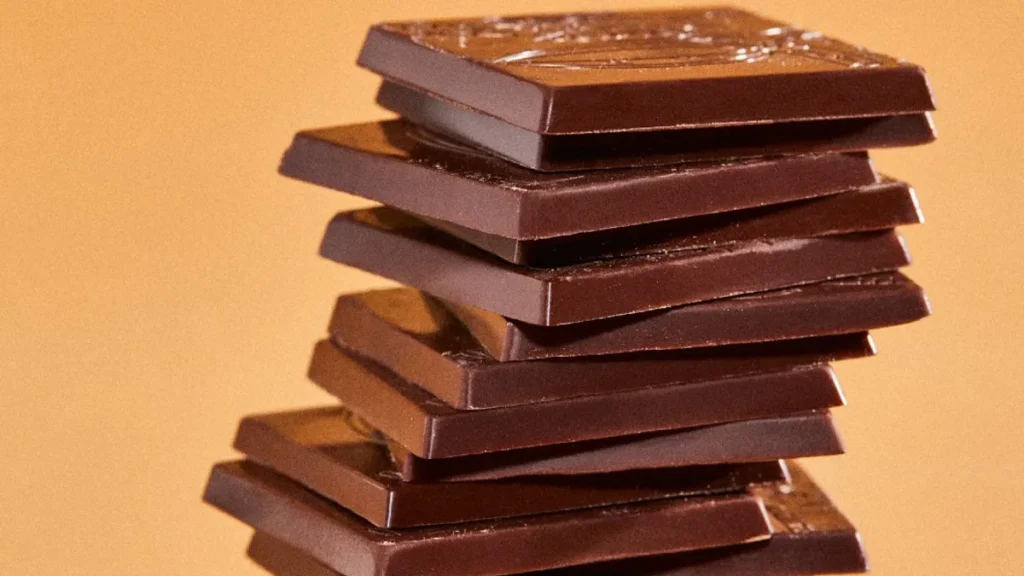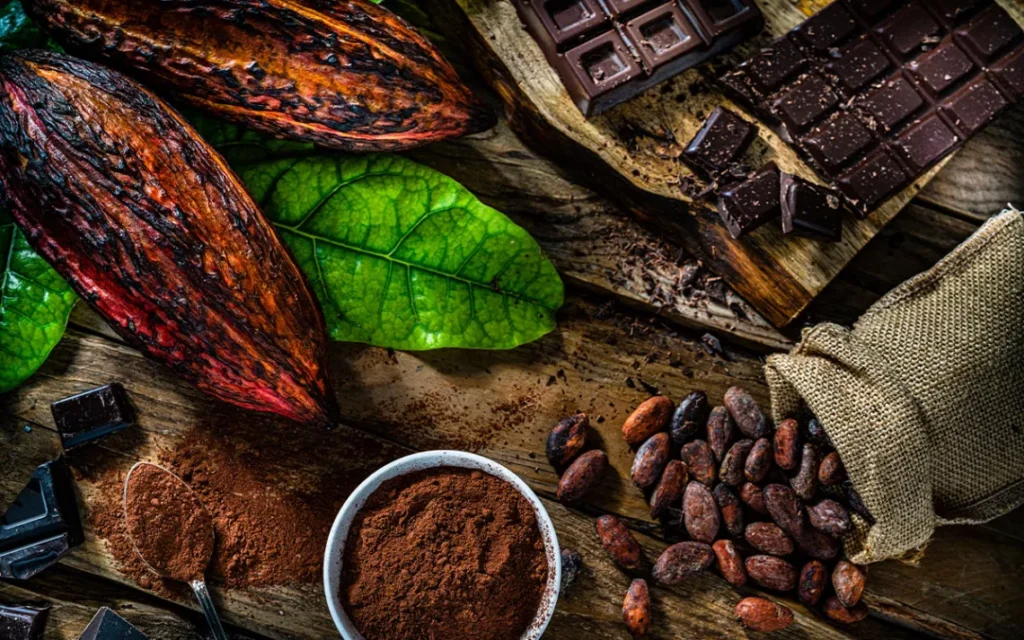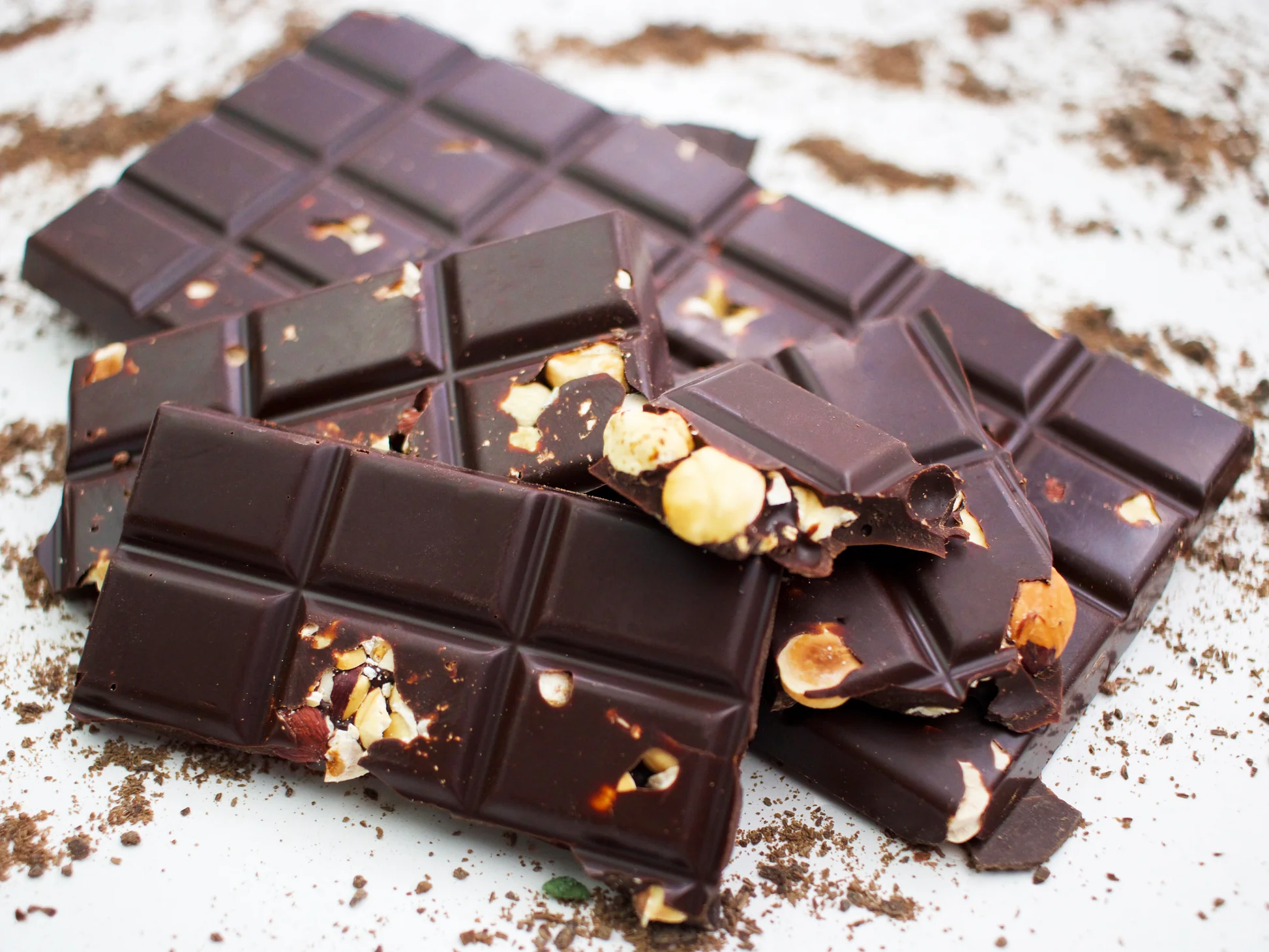Food & Climate
Three global companies have recently raised additional funding to expand their cocoa-free chocolate products, which are said to have a lower carbon footprint and are a good alternative to chocolate extracted from cocoa trees, according a report seen by “Food & Climate” platform.
The first one is the Germany’s Planet A Foods, a pioneer of cocoa-free chocolate (the startup uses a proprietary fermentation process), which raised $30 million Series B funding to expand across Europe, the US and Asia. The round marks one of the largest in food tech this year, despite a wider downturn in investment in the sector.
And Israeli startup Celleste Bio secured $4.5 million for its cell-based cocoa, with repeat participation from Mondelēz International.
While the last one is Copenhagen-based Endless Food Co, which raised €1 million and teamed up with 7-Eleven Denmark to launch cookies made with its upcycled cocoa-free chocolate, made from brewer’s spent grain.
Cocoa-free chocolate to 20 customers
By turning sunflower seeds into sustainable, cocoa-free chocolate has netted Munich-based B2B food tech startup Planet A Foods (formerly QOA) a $30 million Series B funding round.
While the Y Combinator alum is gearing up for industrialization, with the funds set to be deployed to scale its production capacity by around 7.5x. The round fast follows a $15.4 million Series A back in February.
Currently, the startup is producing 2,000 tons of ChoViva, as it calls its cocoa-free, lower carbon chocolate alternative, per year. It plans to step that up to over 15,000 tons as it adds capacity and kicks off international expansion outside an initial trio of European markets.
Opening its first U.S.-based production facility is on the cards. Building on the three local markets (Germany, Austria, and Switzerland) where its chocolate substitute is already in food products that aim to tempt sweet-toothed consumers, it is also eyeing launches into the U.K. and France during the first quarter of 2025.
So far, the startup has around 20 customers for its alt chocolate ingredients, mostly major European food manufacturers but also some U.S. brands. As it grows capacity, it’ll be aiming to add more strategic partners too, according to “Teck Crunch“.

Cocoa prices rise
This year has already seen cocoa prices rise to their highest levels ever, so cocoa-free options play a major role in keeping chocolate on shelves, according to “Green Queen”.
The chocolate industry causes mass deforestation and significant carbon emissions associated with it; decarbonising how we produce chocolate is critical if we’re to safeguard the industry- not to mention regulation like Europe’s EUDR, which limits deforestation-linked product imports into the bloc.
Traditional cocoa-based chocolate production raises serious sustainability issues, since the crop grows in areas with rainforest, which can be cut down to make way for cocoa bean plantations. Global demand is also outstripping an increasingly fragile (and ethically fraught) supply, leading to inflated costs and fears for the future of the cocoa bean in a rapidly warming world.
Supplying the food industry with an alternative chocolate-esque ingredient that — just like the real deal — can be baked into or folded onto snack products like breakfast cereals, confectionary, and cakes is Planet A’s mission. And it’s not a trivial goal: The startup reckons an annual toll of some 500 million tons of CO2 could be avoided through switching bulk chocolate production away from cocoa beans to its more sustainable method that avoids deforestation and localizes ingredients sourcing.
The ingredients it uses to produce ChoViva have been selected in part as they can be grown locally (oats are another of its staples) — hence it claims a carbon footprint that’s up to 80% lower than conventional chocolate.
“We’re not against chocolate,” stresses co-founder and CEO Dr. Maximilian Marquart, one half of the brother-sister founder team behind Planet A Foods. CTO Dr. Sara Marquart is the food scientist who developed the process for making the cocoa-free chocolate. “That’s very important. So we’re not taking away your [premium] chocolate. We’re after all the snacking applications — [confectionary such as] M&Ms, Snickers, Mars, Bounty, you know, all that stuff.”
Premium chocolate is a tiny market compared to the bulk business of mass market confectionary that Planet A Foods is targeting. And in this domain, where environmental degradation occurs at terrible scale, the quality of the chocolate that’s used is generally lower, often because it’s lower in actual cocoa-content — hence [Maximilian] Marquart argues there’s no difference between how ChoViva tastes, and the stuff consumers are routinely being sold in mass market products. “It’s indistinguishable,” he suggests.
“My sister Sara . . . found out that actually 80% of the typical chocolate flavors come from the processing of the cocoa beans and not from the beans itself — so, if eight out of 10 flavors are actually coming from fermentation roasting, why do you need cocoa beans?”

Scaling aside, funding will also go on further research and development, as the team is working on an alternative to cocoa butter, which is another key ingredient for the food industry. Being able to offer a replacement for palm oil is another goal, as that also creates huge sustainability problems. The startup also believes its approach could work to replace other specialty fats that are used in food production, such as stearin, an animal fat, or coconut oil, per [Maximilian] Marquart.

